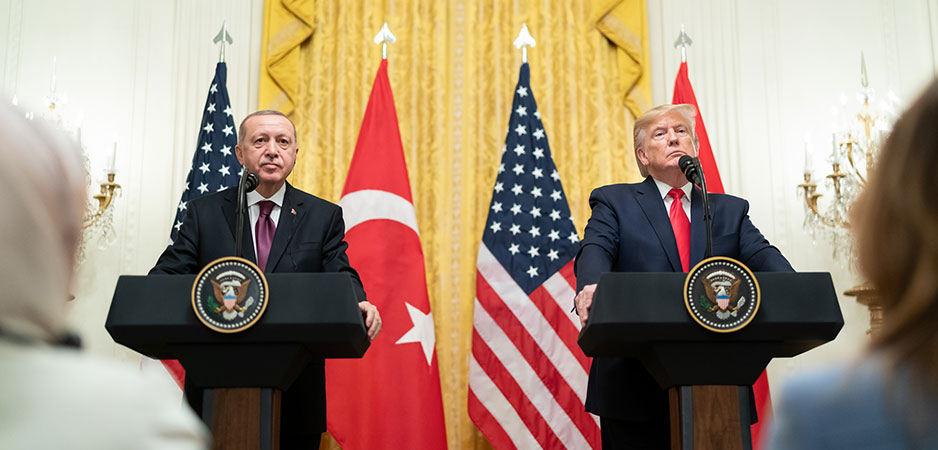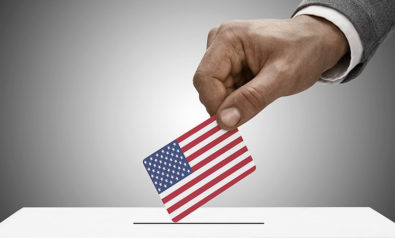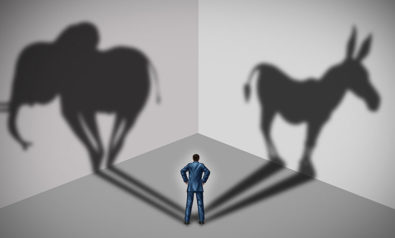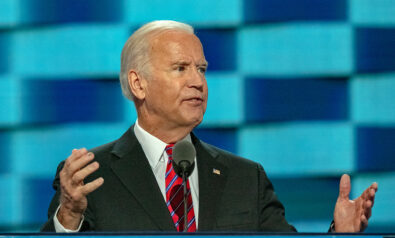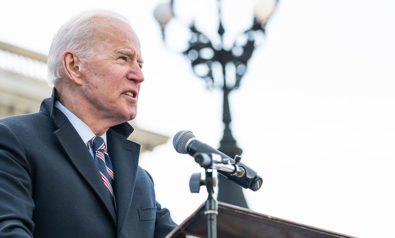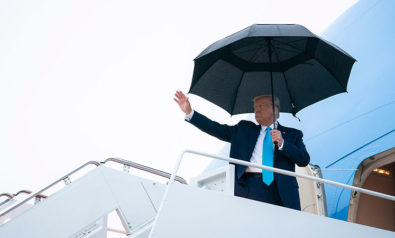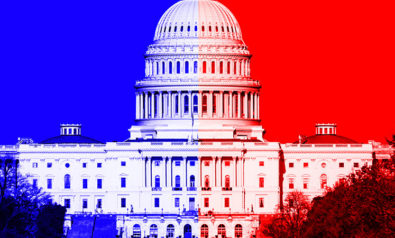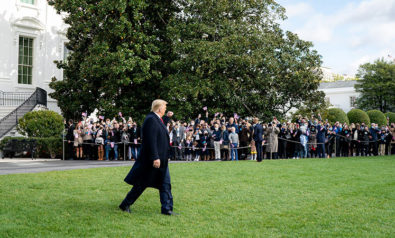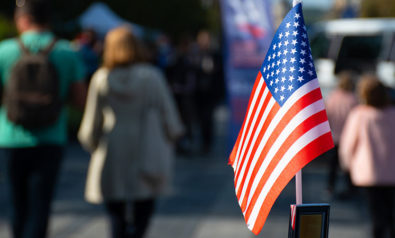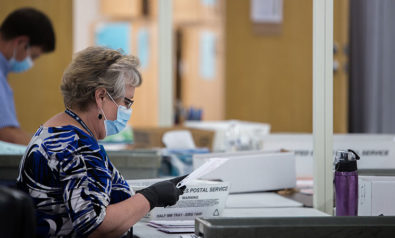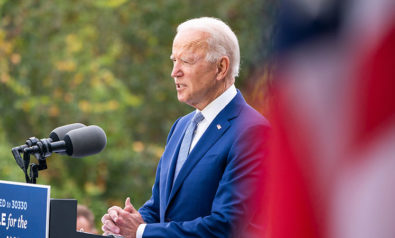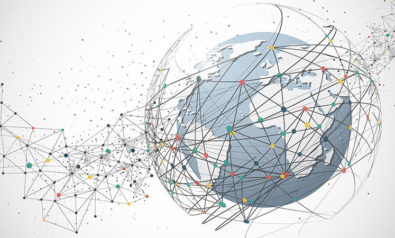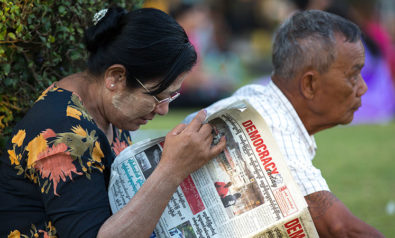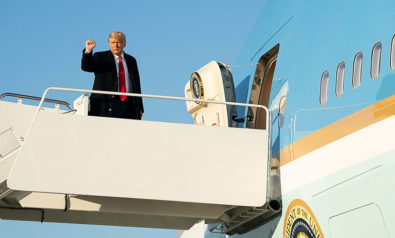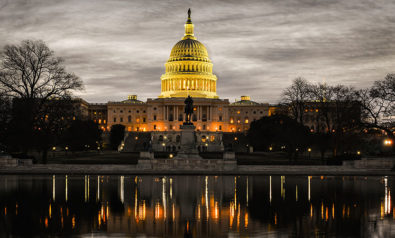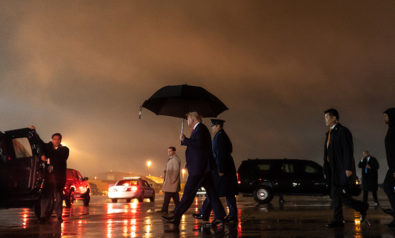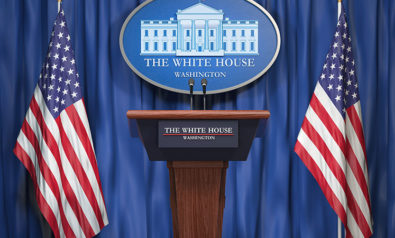In an interview for a new book from Washington Post journalist Bob Woodward, US President Donald Trump says: “I get along very well with Erdogan, even though you’re not supposed to because everyone says, ‘What a horrible guy.’” A lot is revealed in that statement. The key lies in the phrase “you’re not supposed to.” It implies there is a moral authority vetting such preferences and that he is dismissive of that moral authority.
360° Context: The 2020 US Election Explained
Of course, it says more about the moral fault lines at the heart of US politics than it does about US-Turkish relations. These fault lines are being given the scorched earth treatment once more as the election season draws to a close. But what does the future hold for US-Turkish relations, once so unshakable and now so fractious, despite President Trump’s personal warmth toward Recep Tayyip Erdogan? Will it make any difference if the old man at the helm is Joe Biden instead?
Let the Old Men Talk
As the above quote reveals, much about US-Turkish relations today is being driven by personalities. Individuals always matter in international relations, but their importance is accentuated by the rise of figures who command strong populist appeal, who are firmly embedded in positions of power and who espouse an essentially patriarchal and conservative vision of the exercise of that power. It means relations are not the smooth ride they were during the Cold War era. Today, these populist figures thrive on being bullish and awkward leaders.
In Donald Trump, Turkey’s leader, like many others, has found a man with whom they can engage. Indeed, President Erdogan is said to have a regular hotline to the White House. The US president is openly admiring of strong and often autocratic leadership. It’s a style he clearly feels he epitomized in the business world and which he has brought to his presidency. That his tenure as the president of the United States may be briefer than that of many of the populist and autocratic leaders he admires is the one spoiler.
It may also be a spoiler for the US more broadly. In the past few years, such world leaders have grown self-confident in the global order lead by Donald Trump. A Biden administration that chastises them for their faults on human rights, conflict resolution or democratic norms might well receive a hostile response. This poses a conundrum for the United States. A president who set out specifically to put America first may have made it far harder for a successor who wants to begin collaborating again.
What Would Biden Do?
The signs are that as president, Joe Biden would not have as easy a relationship with Erdogan as Trump has had. Given that getting on with Turkey has increasingly come to mean getting on with its president, this matters a great deal. Almost a year ago, Biden said in an interview with The New York Times that he regarded Erdogan as an “autocrat.” He also expressed misgivings about Turkey’s actions in Syria, confrontations in the eastern Mediterranean about energy resources, and the stationing of NATO nuclear weapons on Turkish soil.
Though these comments went unacknowledged at the time, the Turkish government has since raised heated objections as Biden’s presidential bid has gathered steam. There will also be real concerns in Ankara about Biden’s longstanding support for Kurdish rights, including his belief that President Trump has dealt shoddily with his nation’s Kurdish allies in Syria after they helped to subdue the Islamic State group. Such a position would bring back some of the tensions of the Obama presidency.
Clearly, upon gaining the presidency, one would expect a measure of realignment from the Biden White House. The former vice president’s strong stance against Erdogan would have to become more nuanced as occurs for all those who gain actual power. President Erdogan is not an autocrat. He may have authoritarian instincts, but autocrats do not allow elections with credible results, nor do they allow their opponents to win the mayoralty in their largest cities.
The complex and competing tensions of the region in which Turkey lies will necessitate the US working with Turkey to a large degree. That requires finding common ground and mutual interest. But necessity can only get you so far. To generate any real warmth to his relationship with President Erdogan, Joe Biden will have to reveal some dissatisfaction with the global status quo or at least some sympathy with those, such as the Turkish president, who are driven by this belief. That such concern genuinely motivates Biden might be a hard sell.
No Smooth Rides
Nothing about the past few years of US-Turkish relations has been smooth, from the furor over the jailing of American pastor Andrew Brunson to the simmering Turkish anger at US refusal to extradite Fethullah Gulen, the head of the movement held responsible in Turkey for the failed 2016 coup attempt. That incident, which has defined the trajectory of the country over the past five years, was a pivotal one not only internally but also externally.
Russian President Vladimir Putin was quick and decisive in backing Erdogan at a point when the success of the coup was still unclear. The US, on the other hand, was less wholehearted, and there was the sense that it hesitated and that US personnel might even have been complicit at the Incirlik airbase in southeastern Turkey. In moments of crisis, you learn whom you can really trust. In the personality politics of today, President Erdogan learned much from that episode. It fed into his already established worldview in which the West was inherently predatory and untrustworthy.
None of this means that Turkey or its president are wedded to deep friendships with US opponents such as Russia, Iran or China. Indeed, Turkey’s relations with Russia over the past five years have been exceptionally turbulent. But it does mean that Turkey has, in President Erdogan, a pugnaciously nationalist leader who is unafraid of picking fights. It means he has picked several with the US itself, and yet, with President Trump at the helm, you always feel that, however unsavory things get, the Turkish president is always half-admired for his obstinate aggression.
If there is a new president in the Oval Office come 2021, it will pose many more challenges for both sides. The relationship will not be easy, and without the bromance that occasionally surfaces between the current leaders, it could be a more dangerous one. US-Turkish strategic goals have been diverging for years. This causes systemic strain to the relationship. The Trump presidency may, inadvertently, have eased some of that strain, but it will not go away. A president less in tune with the current administration in Ankara could tear it further apart. For bilateral relations, for NATO and for the whole Middle East and Mediterranean region that could be a very destabilizing prospect.
The views expressed in this article are the author’s own and do not necessarily reflect Fair Observer’s editorial policy.
Support Fair Observer
We rely on your support for our independence, diversity and quality.
For more than 10 years, Fair Observer has been free, fair and independent. No billionaire owns us, no advertisers control us. We are a reader-supported nonprofit. Unlike many other publications, we keep our content free for readers regardless of where they live or whether they can afford to pay. We have no paywalls and no ads.
In the post-truth era of fake news, echo chambers and filter bubbles, we publish a plurality of perspectives from around the world. Anyone can publish with us, but everyone goes through a rigorous editorial process. So, you get fact-checked, well-reasoned content instead of noise.
We publish 2,500+ voices from 90+ countries. We also conduct education and training programs
on subjects ranging from digital media and journalism to writing and critical thinking. This
doesn’t come cheap. Servers, editors, trainers and web developers cost
money.
Please consider supporting us on a regular basis as a recurring donor or a
sustaining member.
Will you support FO’s journalism?
We rely on your support for our independence, diversity and quality.


